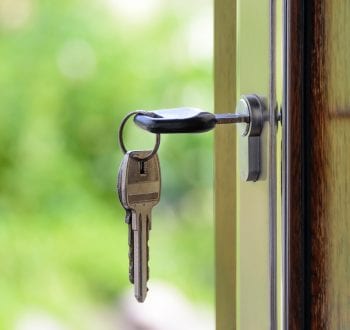
10 science-backed things you can do to feel better, right now
Let’s just say it – 2020 has been a long year. When I stopped work a couple of weeks ago after seven months working intensively on the Covid response, I spent the first few nights waking up every few hours panicking about everything from my team to lockdown restrictions to medical appointments to preparations for Christmas.
Whatever our circumstances, it’s not unusual to be experiencing higher than usual levels of stress and anxiety at the moment. As we know, unchecked stress can lead to all kinds of problems. Mood swings, irritability, short fuses and a general sense of overwhelm are not recipes for health or happiness, and definitely don’t leave us feeling able to cope with daily inconveniences which we would usually take in our stride.
Managing stress and anxiety is a personal thing, and you need to find the right combination of approaches for you – in this piece, I’ve brought together ten of the most powerful actions that have been proven to have tangible positive benefits – and I’ve literally tried all of them! Many will undoubtedly feel familiar – for those of you who are well practiced, you might find it interesting to read about the reasons why these techniques are so effective (I did).
Please do see you GP if you are experiencing periods of prolonged uncontrolled anxiety or depressive thinking, as this piece is not intended to offer solutions to more complex mental health concerns.
1. Switch off
Bad news dominates the headlines – on TV, radio and on social media – and it can sometimes feel as though disaster is always waiting just round the corner. The truth is that bad news dominates the press because it sells – although we might think we would prefer to hear positive news, we are actually more drawn to intrigue, tragedy, and compelling stories – and journalists know this.
Our brains are wired to respond to threats, and will release stress hormones and chemicals such as adrenaline and cortisol when we are in danger. The problem – in a world where bad news is streamed constantly – is that our brains can’t tell the difference between real threats and perceived ones, meaning stress hormones are often released when they don’t need to be. This leaves us feeling wired and on edge, as well as at higher risk from a range of health conditions, from high blood pressure to type 2 diabetes.
Switching off from the news is one of the powerful ways to calm down your whole system, helping you feel more in control. Try switching off notifications across social media, and limiting the time you spend scrolling or watching the news to 1-2 hours a day, at a time of your choosing – ideally finishing at least a couple of hours before bedtime. You may also want to let friends and family know that you’re having a ‘news detox’ and ask them to stick to less fraught topics of conversation.
2. Get outside
Nearly a thousand research studies have shown that being in nature is more than a nice to have – it’s crucial for physical, mental and emotional health. There are all sorts of reasons for this, from boosting vitamin D levels, regulating melatonin production, encouraging you to breathe better, and improving oxygen levels. Assuming you are paying attention to what’s around you, then being in nature – whether in a park, by the sea, in woodland, in the countryside, in the mountains, or even just in your garden – will help lift your mood, reduce blood pressure, lower your heart rate, reduce muscle tension, and limit the production of stress hormones. If you can build in a walk, a run, or some other form of exercise, then so much the better.
3. Do a jigsaw puzzle
…or any other finite task over which absorbs you, and over which you have complete control (think working on a craft project, tinkering with your car, taking on a DIY project or following a recipe). Why does this work? Clinical neuropsychologist Dr. Susan Vandermorris explains that if you’re working on puzzle or task that is immersive, then you are by definition disconnected from the interruptions and stresses of day-to-day life – in other words, the things that are causing you to feel stressed out in the first place. Having a sense of control feels good in a world where everything feels so out of control, and activating the parts of your brain responsible for logic and reason puts you into problem solving mode, rather than operating emotionally / reactively.
4. Have a shower
Hot water warms up and relaxes your muscles, relieving tension. Both the heat and the massaging effect of the water improve circulation, which helps break down lactic acid, and can reduce pain. And the steam will clear out your sinuses!
5. Breathe (properly)
Ever noticed how shallow your breathing becomes when you feel tense and anxious? Deep breathing increases the supply of oxygen to your brain and stimulates the parasympathetic nervous system, which promotes a state of calmness. Try closing your eyes and taking five deep, full breaths into your abdomen, and notice how you quickly you start to relax.
6. Watch a sitcom, and look at pictures of puppies
There’s a reason why shows like Friends are having a resurgence at the moment – they’re comfort food for the soul. Crucially, they make you laugh – and laughter has almost limitless benefits for health and wellbeing, including releasing serotonin (the ‘happy’ hormone).
Don’t forget that scary and tense shows trigger the same fight or flight response as any other traumatic event – so this might not be the kind of content to watch if you are trying to feel calm.
Pets can also be a source of serotonin release and we already know that owning pets is good for your health for many other reasons as well. But did you know that it’s possible to achieve similarly positive effects just by looking at pictures of baby animals? Not only will this improve your concentration, it will also make you feel happier, safer, calmer, more content, more in control, and more grateful.
7. Watch your diet
I’m definitely not going to suggest making massive changes to your diet at the moment (unless you want to!) It’s worth being aware though that certain foods and drinks can radically affect your mood, including making you feel more anxious.
For example, we all know that caffeine is a stimulant and can make you feel jittery – if you usually start your day with a few cups of coffee, try switching to a decent brand of decaf, or replacing one cup at a time with breakfast tea, green tea, or a couple of squares of dark chocolate. Foods that are high in sugar and fat place additional stress on your body and can also make you feel anxious and tired. Adding more protein-rich food (such as chicken, fish, soy, nuts) into your diet can stabilise your blood sugar, and complex carbohydrates like whole-grain breads and pastas, brown rice, beans and lentils, and fruits and vegetables can cause your brain to release serotonin, which triggers relaxation and happiness.
Finally, while a couple of glasses of wine can be exactly what we need after a difficult day, don’t forget that alcohol is a depressant and can make you feel on edge, as well as affecting your sleep patterns.
8. Write down your thoughts…then add five things you are grateful for
If your mind is still racing, it can help to write down your thoughts. Why?
One of the primary reasons for anxious thoughts is that your brain becomes hypervigilant – i.e.: it tries to keep you safe by anticipating all the things that might go wrong, and drawing your attention to these so that you take action to avoid them happening. In anticipating everything that might go wrong, your brain is forced into fight-or-flight mode, releasing cortisol and other stress hormones.
The act of writing accesses your left brain, which is analytical and rational. This gives you a chance to process your thoughts logically, via a different part of the brain, which has a calming effect and stops the release of stress hormones. Writing your thoughts down also signals to your brain that although you are putting them to one side, they are safely stored – in other words, you reassure the anxious part of your brain that you have not forgotten its warnings.
Writing can also help you clarify your thoughts and feelings, identify triggers for sadness and anxiety as well as things that make you happy, and acts as a way to release and process intense feelings. Trust me – it’s brilliant – try it.
9. Try some simple yoga poses
Whether or not yoga is your ‘thing,’ there’s no denying that it has proven health benefits when practiced regularly. I’d suggest starting with Child’s pose (or the wide legged variation), and – if you are physically able to – legs against the wall. Both of these will relieve tension in the lower back, slow the breathing, and improve circulation. Try to find a comfortable position, and hold poses for 3 – 4 minutes each, focusing on your breathing throughout.
10. Help someone else
Helping someone else out is one of the most powerful ways to feel good, and there is more and more evidence suggesting a link in the brain between generosity generosity and happiness. When you’re focused on meeting someone else’s emotional or physical needs, you’re too busy to think about your own ‘stuff’ to be anxious. You’ll also lower your blood pressure, reduce stress and anxiety, and release endorphins which make you feel happier, improving your mental health, confidence and self – esteem.
Final Thought
It’s easy to forget that we each have the power to make simple changes to reduce our stress and anxiety. Combining just a couple of these science-backed strategies every day can lead to reduced feelings of overwhelm, and a greater sense of control.
We send out a fortnightly newsletter every Friday. Just leave your email address with us for the latest news, exclusive updates and offers from the Living Well Alone Project.






One Comment
Sustain blog
That is wonderful. Thank you! It’s a good post…